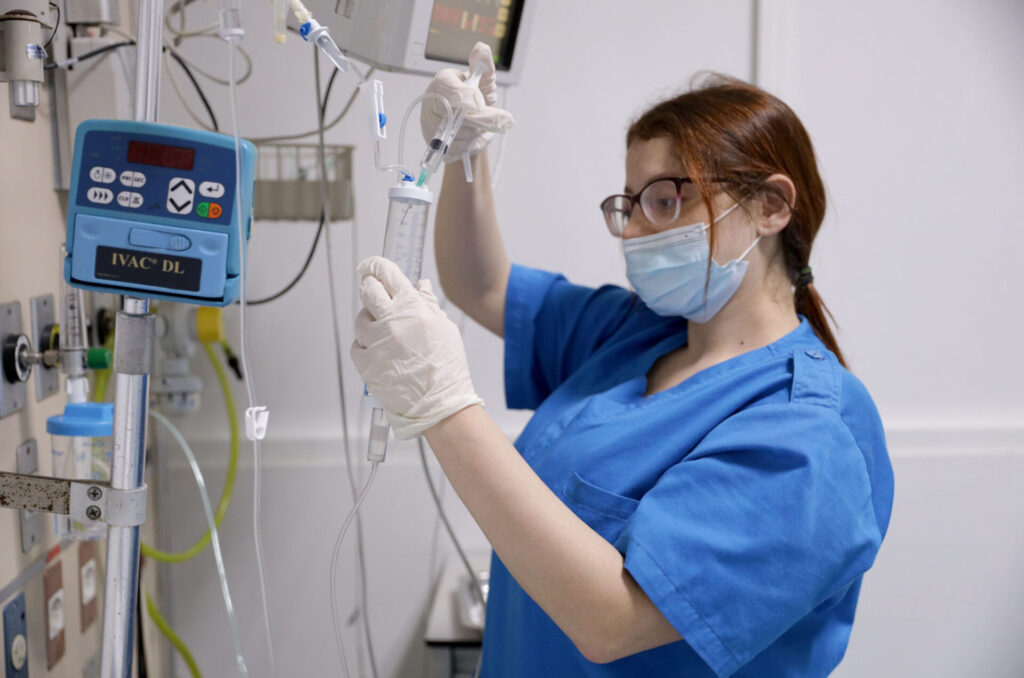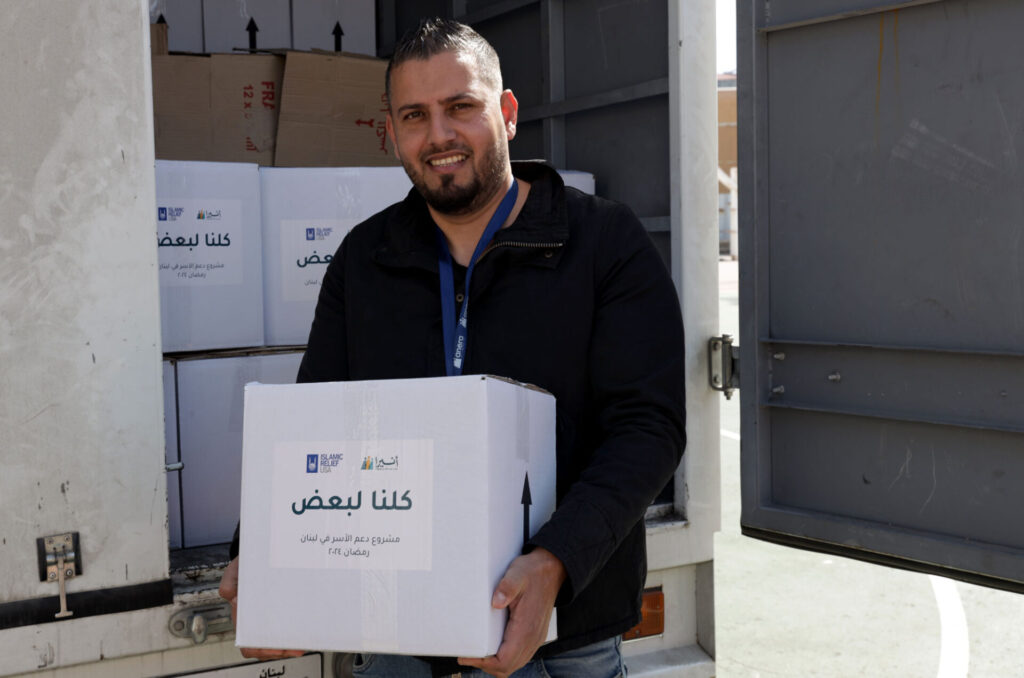Oct, 2021
Medical shortages endanger mental health patients in Lebanon
In crisis-hit Lebanon, hospitals struggle to operate amid hyperinflation, and the devastating electricity, fuel and drug shortages. To add to the challenges, many of the hardest hit are also seeing serious threats to their ability to obtain food and water.
Most recently, the head of the World Health Organization, Tedros Adhanom Ghebreyesus, released a statement saying that there is “no country in a crisis like Lebanon.” The local population has been submerged in one crisis after another, subjecting people to prolonged stress and threatening their mental health.
`
Mental suffering looks different for every person. It can manifest in obvious ways, or remain hidden. Whatever its form, psychological trauma should be treated.
Nariman, 53, is a patient at the Makhzoumi Foundation Health Center, a Beirut-area nonprofit healthcare provider. Nariman says, “The combined trauma from the Beirut blast, the coronavirus pandemic, and the currency crisis have brought new complications and serious mental disturbances.”


“The combined trauma from the Beirut blast, the coronavirus pandemic, and the currency crisis have brought new complications and serious mental disturbances.”
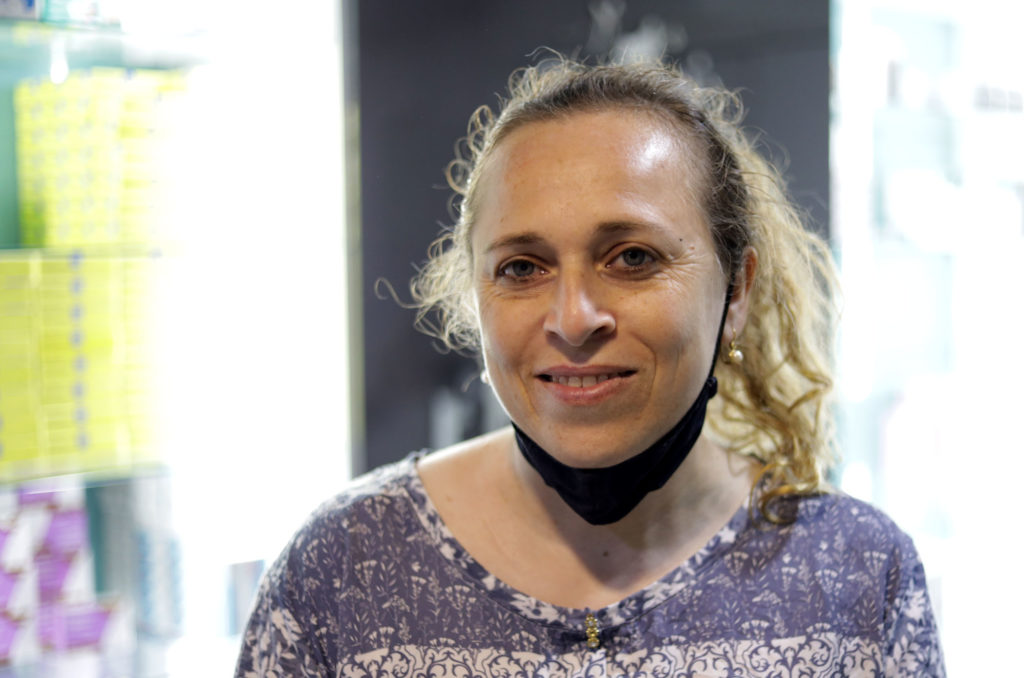

Through a recent donation from International Health Partners (IHP), Anera was able to support the Makhzoumi Foundation Health Center with a delivery of an anti-depressant medicine. IHP is a UK-based non-profit organization serving communities in disaster-hit areas of the globe by providing medication assistance and care.
IHP has been working with Anera, its longtime in-country partner, to alleviate the worsening medical shortages in Lebanon. Anera recently distributed multiple shipments of an anti-depressant medicine, which will benefit a great many patients struggling with the emotional toll of life in Lebanon in recent years.
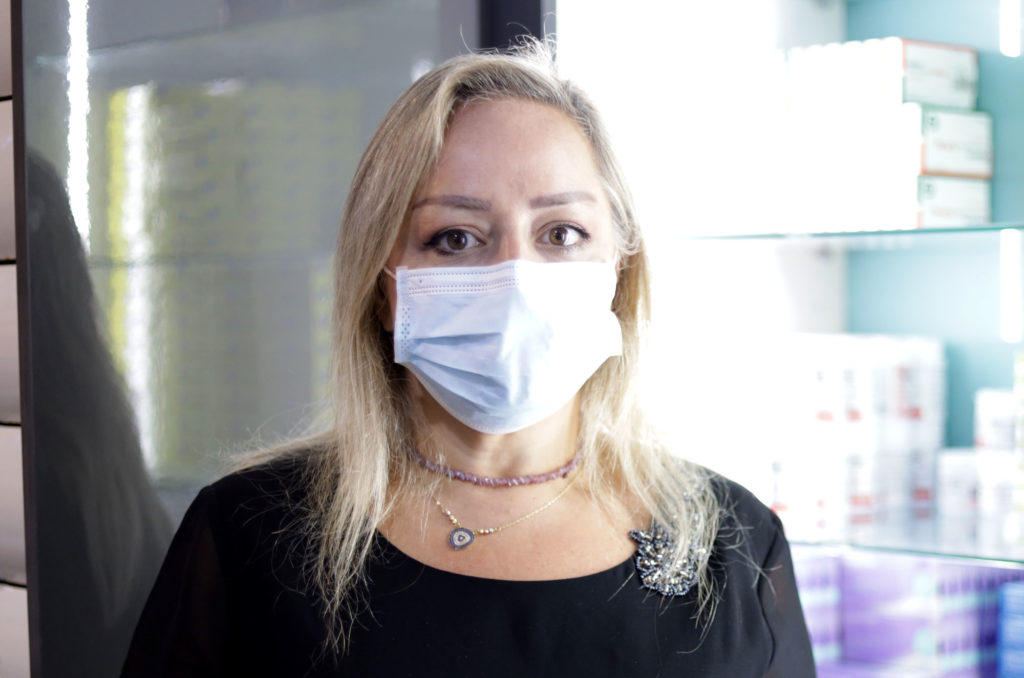

Anera split the donation between the Makhzoumi Foundation Health Center and Beirut hospitals, to help ensure that adult psychiatric patients experiencing depression receive the treatment that they need.
Kawthar, 47, is another patient at Makhzoumi. She says,
“The port explosion destroyed my house. It was a financial disaster. But what worries me is the long-term damage – mainly psychological and emotional – inflicted on all Lebanese people.
"My son was very close to the port when the explosion happened and he has been facing mental health issues ever since.”


“What worries me is the long-term damage – mainly psychological and emotional – inflicted on all Lebanese people."
Appropriate care relies on sustained and consistent treatment, making it imperative to use the same medications. This is especially important for the treatment of chronic conditions.
Jihad Jamaleddine is a pharmacist at Makhzoumi. He says,
“Changing medications can cause critical treatment failures. This is something patients and doctors try to avoid in order to maintain consistent patient care. When we are unable to acquire anti-anxiety medication, patients can become distracted, dizzy, depressed or even suicidal, and may develop headaches or tachycardia.”
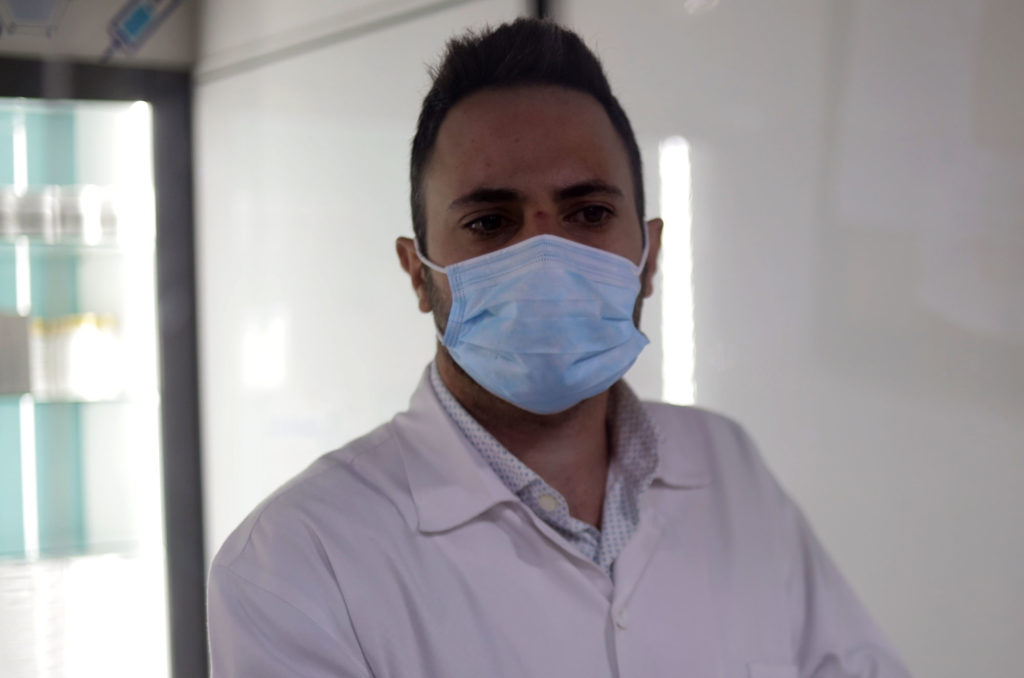



“Thanks to Anera, we regained access to [an anti-depressant medicine] and our patients stick to their medicine regimens.”
To avoid potential complications, patients must take their full course of medications on an uninterrupted schedule. A number of medications, however, have now become unavailable or unaffordable in Lebanon.
“There is a major drug shortage and distributors have stopped supplying primary healthcare dispensers. They can barely fill a few pharmacy shelves,” Jamaleddine says. “Thanks to Anera, we regained access to [an anti-depressant medicine] and our patients stick to their medicine regimens.”
The anti-depressant medicine IHP donated is a first-line treatment option for patients with depression. Pharmacies and medical depots across Lebanon have recently reported shortages of this vital drug. This puts the lives of psychiatric patients at risk. Ensuring the availability of anti-depressant medicines has therefore become a top priority for medical and humanitarian institutions.
“After my father passed away suddenly, I was overwhelmed with sadness and burdened by responsibilities. I tried to commit suicide,” Kawthar says. “I was diagnosed with depression, and started medication immediately. I can finally say I’ve become stable and happy with my treatment. I’m afraid I may have to stop at some point, though, because of the severe shortages in the country.”
Suicide has long been considered as a non-issue in Lebanon, widely ignored by the general public and the authorities alike. It has been a taboo subject, which is one reason why the government provides little assistance for therapy or treatment and mental health disorders frequently go untreated. Change is slow but recently mental health has finally begun to become an acceptable topic for discussion in polite society. In the last five years, organizations have been established to provide suicide-related awareness, prevention and support.
Lebanon loses one person to suicide every two days. Behind one out of every four doors in Lebanon, someone is suffering from depression or another mental health disorder.
“I want to shed light on the importance of therapy, which is a huge taboo in our society,” Kawthar says. “The only thing keeping me from undergoing therapy is its high cost.”
“As much as I dislike relying on drugs for treatment, I know that I need to continue it to attend to my mental health, as well as my severe insomnia,” Nariman says. “The treatment has truly helped me stabilize, and showed me the importance of mental health treatment.”
Given the grave material conditions in Lebanon facing refugees and increasingly for Lebanese as well, humanitarian aid has often focused on responding to emergency needs. Initiatives to help rebuild Beirut after the explosion provide support for coronavirus healthcare or deliver chemotherapy medicines, which are all essential. But mental health and psychiatric disorders have been somewhat neglected in the disaster-struck country.
Anera, with help from IHP, is helping to fill this gap. It has been working with local institutions to understand the needs of this patient population, in order to deliver medical donations where they are most urgently needed.
Nariman says she “struggled to find my medications. I’d go to countless pharmacies, but with no luck.” Fortunately, she found the Makhzoumi Foundation, which, she says, “has kindly provided me with [an anti-depressant medicine]. What a relief!”
Considering the high rates of mental health disorders and the stigma still attached to the issue, we all need to do our part to increase public awareness and acceptance. Suicide hotlines and mental health call centers in Lebanon have been crucial to fostering dialogue and building a more compassionate community.
We must care for ourselves and each other's well-being. Social connections, support and solidarity are integral to this, and to saving lives. Offering emotional support to individuals facing mental health problems can be life-saving, and even inspire improvement in our own sense of well-being.

